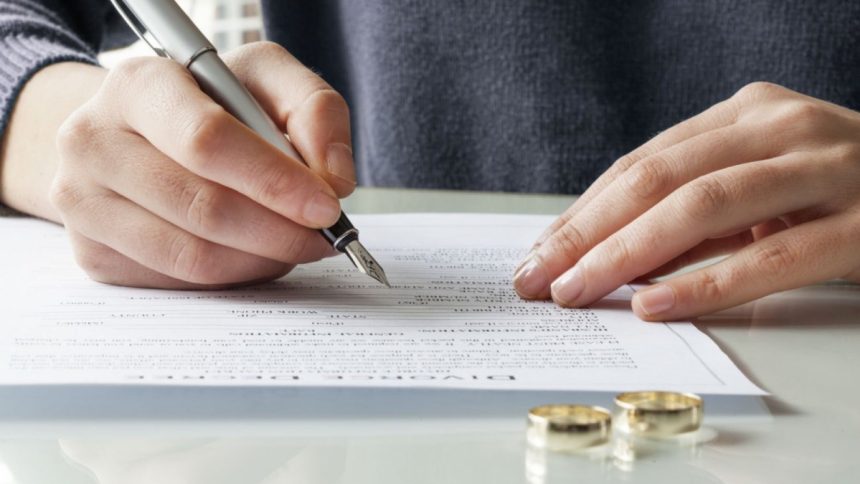Divorce can bring many changes, especially when it comes to money. After a marriage ends, it’s common to feel unsure about how to handle your finances. You might need to make changes to how you spend and save money. The good news is that you can rebuild your finances with a little planning and patience.
Assessing Your Current Financial Situation
The first thing you need to do is figure out where you stand financially. This means taking a good look at all the money you have, what you owe, and what you earn. You can start by making a list of everything you own. This could include your bank accounts, property, retirement savings, or anything else valuable. Then, make another list of all your debts. These could be loans, credit card balances, or any unpaid bills.
It’s also important to look at your income. You might have a steady paycheck, or maybe your income has changed after the divorce. By understanding your current financial situation, you can start to make a plan for how to move forward. Keep all your financial documents in one place, so it’s easy to review them when needed.
Creating a New Budget
Divorce often means adjusting your budget. You might now be handling expenses on your own, so it’s important to make sure your spending fits your new income. The first step is to create a budget that focuses on your basic needs, such as rent or mortgage, utilities, food, and transportation.
Once you’ve covered the essentials, see if there is room to save some money. Saving a little bit every month can help you build an emergency fund, which we’ll talk about in a moment. A good rule to follow is to avoid spending more than you earn. It’s okay to make small adjustments as you go, but having a budget in place will help you stay on track.
Managing Debt
If you have debts from your marriage or have taken on new debt, it’s important to address them right away. Start by listing all your debts in order of how much you owe and what the interest rates are. High-interest debts, like credit cards, should be paid off first because they can grow quickly if left unpaid.
If paying all your debts seems overwhelming, you might want to look into options like debt consolidation. This can combine all your debts into one payment with a lower interest rate. You can also contact your creditors to negotiate lower payments or ask for help with repayment plans.
Building an Emergency Fund
One of the most important things you can do after divorce is to build an emergency fund. This is a savings account that you can use when unexpected expenses come up, like car repairs or medical bills. Having this money set aside can give you peace of mind, knowing you won’t have to rely on credit cards or loans for emergencies.
Start small by saving a little each month, even if it’s just $20 or $50. Over time, these savings will add up. Aim to have at least three to six months’ worth of living expenses saved in your emergency fund. This way, if you lose your job or face another financial challenge, you’ll have a cushion to fall back on.
Reevaluating Insurance Needs
Divorce can change what types of insurance you need. For example, if you had health insurance through your ex-spouse’s employer, you’ll need to find a new policy. You should also review your life insurance and make sure the right people are listed as beneficiaries, especially if you have children.
If you own a car, make sure your auto insurance is up to date. Also, think about whether you need any other types of coverage, like renter’s or homeowner’s insurance. It’s a good idea to talk to an insurance agent to ensure you have the right protection for your new situation.
Improving Credit Score
If your credit score has dropped due to divorce, don’t worry. There are steps you can take to improve it. First, make sure you pay all your bills on time, including rent, utilities, and credit card payments. Late payments can hurt your credit score, so set reminders or automatic payments to stay on top of things.
Next, try to pay down any credit card balances. Keeping your credit card balance low can help boost your score. Lastly, check your credit report regularly to make sure there are no errors. You’re allowed to request a free credit report once a year from the three major credit bureaus.
Saving for the Future
Even though your financial situation may feel tight right now, it’s important to think about the future. Saving for retirement is key, especially after a divorce. If you haven’t already, consider setting up a retirement account like an IRA or contributing to a 401(k) if your employer offers one.
If possible, try to set aside a small amount each month for your retirement. Over time, even small contributions can grow into a significant amount. If you’re unsure where to start, it might be helpful to speak with a financial advisor who can guide you on the best savings options for your goals.
Seeking Professional Financial Advice
Rebuilding your finances after divorce can feel overwhelming, and that’s where a financial advisor can be helpful. A professional can help you organize your finances, create a long-term plan, and give you advice on budgeting, debt repayment, and saving for the future.
Furthermore, seeking help from an experienced divorce lawyer can also help you understand how your taxes might change after divorce and guide you on how you should adjust your financial strategies according to your local financial laws. Working with a professional ensures that you’re making informed decisions about your money and can help you stay on track as you rebuild.
Rebuilding your finances after a divorce isn’t easy, but it’s possible with careful planning and patience. By assessing your financial situation, creating a budget, managing your debt, and building savings, you’ll be on your way to financial independence. Don’t forget to take it one step at a time and ask for help when needed. With time and effort, you can regain control of your finances and start building a brighter future for yourself.
Lynn Martelli is an editor at Readability. She received her MFA in Creative Writing from Antioch University and has worked as an editor for over 10 years. Lynn has edited a wide variety of books, including fiction, non-fiction, memoirs, and more. In her free time, Lynn enjoys reading, writing, and spending time with her family and friends.















